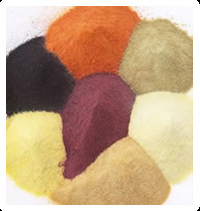Celery Purchase & Information

Alternative Names
Ache des Marais, Ajamoda, Ajmoda, Ajwan, Apii Fructus, Apio, Céleri, Celeriac, Celery Fruit, Celery Seed, Celery Tuber, Fruit de Celeri, Graine de Céleri, Karmauli, Persil des Marais, Qin Cai, Smallage, Selleriefruchte, Selleriesamen
Scientific Name
Apium Graveolens
Why Do People Use Celery?
Orally, celery is used to treat rheumatism, gout, hysteria, nervousness, headache, weight loss due to malnutrition, loss of appetite, and exhaustion. Celery is also used as a sedative, mild diuretic, urinary antiseptic, digestive aid, menstrual stimulant, antiflatulent, aphrodisiac, to reduce lactation, for regulating bowel movements, stimulating glands, for blood purification, dysmenorrhea.
Is It Safe To Use?
Likely Safe - When the oil or seeds are consumed in amounts commonly found in foods. Celery seed has Generally Recognized as Safe (GRAS) status in the US. When used orally and appropriately in medicinal amounts.
How Effective Is Celery?
Dysmenorrhea - Clinical research shows that taking a specific combination product containing celery seed, saffron, and anise extracts (SCA, Gol Daro Herbal Medicine Laboratory) 500 mg three times daily for 3 days, starting at the beginning of bleeding or pain, significantly reduces severity and duration of pain symptoms associated with menstruation compared to placebo.
How Celery Works?
The applicable parts of celery are the fruit and seed. Sedative, diuretic, and antispasmodic effects of celery seed may be due to phthalide constituents (d-limonene, selinene, and related phthalides). Celery plant extracts have hypotensive and hypoglycemic effects. In preliminary research, 5 of 23 celery-based preparations displayed antiarthritis effects; none of the extracts displayed anti-inflammatory or antipyretic effects. The activity of celery seed is thought to be dependent on processing at low temperatures. Another constituent, apiogenin, has shown evidence of antiplatelet activity. The essential oil can increase kidney inflammation by irritating epithelial tissue. Celery juice has been reported to have bile stimulating activity. Celery seed oil has shown bacteriostatic effects. Celery also contains the furocoumarins bergapten and celereodise, a dihydrofurocoumarin glycoside (isoquercitrin), and the coumarin glycoside apiumoside. Celery is a rich plant source of calcium, magnesium, and iron.
What Are The Side Effects /Adverse Reactions of Celery?
Celery can cause contact dermatitis. Mild allergic reactions to anaphylactic reactions have also been documented. Allergic reactions to celery are more likely in patients who are also sensitive to mugwort, birch, dandelion, or wild carrot. This has been called the "celery-carrot-mugwort-spice syndrome".
How Celery Interacts With Other Herbs and Supplements?
None known.
How Celery Interacts With Drugs?
Celery is thought to have diuretic properties. Theoretically, due to these potential diuretic effects, celery might reduce excretion and increase levels of lithium. The dose of lithium might need to be decreased.
Theoretically, concomitant use might result in increased photosensitivity. Some drugs that cause photosensitivity include amitriptyline (Elavil), quinolones (Ciprofloxacin, others), sulfa drugs (Septra, Bactrim, others), and tetracycline.
How Celery Interacts With Foods?
None known.
How Celery Interacts With Lab Tests?
Celery seed might decrease thyroxine (T-4) serum levels and test results. The mechanism for this interaction is unknown.
How Celery Interacts With Diseases and Conditions?
Celery can cause allergic reactions in patients who are sensitive to other plants and spices including wild carrot, mugwort, birch, and dandelion. This has been called the "celery-carrot-mugwort-spice syndrome".
Celery has CNS depressant effects. Theoretically, celery might cause additive CNS depression when combined with anesthesia and other medications during and after surgical procedures. Tell patients to discontinue celery at least 2 weeks before elective surgical procedures.
What Should Be the Dose/Administration of Celery?
ORAL or dysmenorrhea, a specific combination product containing celery seed, anise, and saffron extracts (SCA, Gol Daro Herbal Medicine Laboratory) 500 mg three times a day for 3 days from the onset of menstruation has been used.
Traditionally, 0.5-2 grams of dried fruit three times daily has been used. One cup of tea, prepared by simmering 1 gram of fresh crushed dried fruit in 150 mL boiling water 5-10 minutes, has been used three times daily. 0.3-1.2 mL of the liquid extract, 1:1 in 60% alcohol, has been used three times daily.
Comments
Furanocoumarin content increases 100-fold in injured or diseased celery. Celery is available in capsule form, containing 450 or 505 mg of the oil. The ancient Greeks used celery to make wine, which was served as an award at athletic games.
General Certificate of Analysis (COA)
Specification sheet links below are a standard copy of the COA less the batch or lot number and manufactures dates. Specification sheet can be dated and should only be considered as a general information. Please contact and request an up to date COA if needed for specific updated information before placing order by filling out the contact form with product name and SKU number. If ordering quantities of twenty five kilos or more contact for availability.
